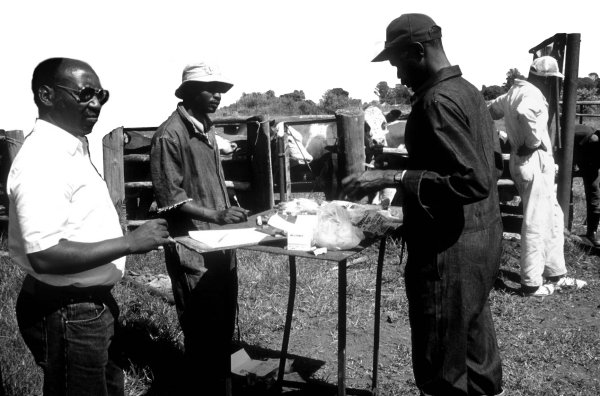


Costs associated with providing technical assistance associated with Uruguay Round follow-up vary widely. Technical Cooperation Programme (TCP) projects such as those associated with SPS and TBT issues, including assistance in strengthening food control and plant protection services and in training veterinarians in risk assessment, may vary from US$50 000 to as much as US$200 000.
Costs are determined by factors such as the length of the project, the number of specialist consultants involved and the depth at which the subject matter is covered.
The delivery costs of projects involving the development of policy and its implementation associated with, for example, the Agreement on Agriculture, also vary widely. An examination of the implications of the Uruguay Round for export commodities and for domestic support policies of a developing country may cost in the order of US$50 000, while the cost of assistance for a comprehensive agricultural sector policy reform in a developing country may exceed US$350 000, although such projects usually amount to US$200 000. Projects to assist countries in strengthening their own institutional capacity for analysing trade policies, and involving sensitization seminars for senior policy-makers, training courses for policy officers and local studies on the impact of various trade scenarios on the agricultural sector, may cost between US$150 000 and US$250 000.
Where capital expenditure is involved, such as that associated with supplying equipment and buildings (e.g. analytical equipment and laboratories to house it), assistance costs escalate.
Workshops and meetings in connection with Uruguay Round Agreements that are fully sponsored by FAO may cost up to US$4 000 per participant to conduct.
It is anticipated that member countries' requests for FAO technical assistance associated with the Uruguay Round Agreements will increase rather than decline in the foreseeable future, some reasons for this being:
The major source of finance for technical assistance related to Uruguay Round Agreements has been the FAO Regular Programme budget, including TCP funding. Some extrabudgetary and trust fund monies have been contributed by other international organizations and donor countries for conducting workshops and symposia on Uruguay Round Agreements.
Because of financial constraints limiting its capacity to provide all technical assistance sought from its Regular Programme budget, FAO seeks financial support from donor countries and international organizations through trust fund and other arrangements. This expectation springs from the spirit of cooperation pervading the Uruguay Round negotiations as well as specific declarations in various Uruguay Round Agreements committing developed countries to assisting developing countries in becoming fully fledged partners in the global trading system.
An important objective of FAO is to promote international trade and further the development of the world economy. Accordingly, FAO remains dedicated to supporting the international trade regime resulting from the Uruguay Round negotiations and will continue to maximize technical assistance to its member countries within its budgetary capabilities.
